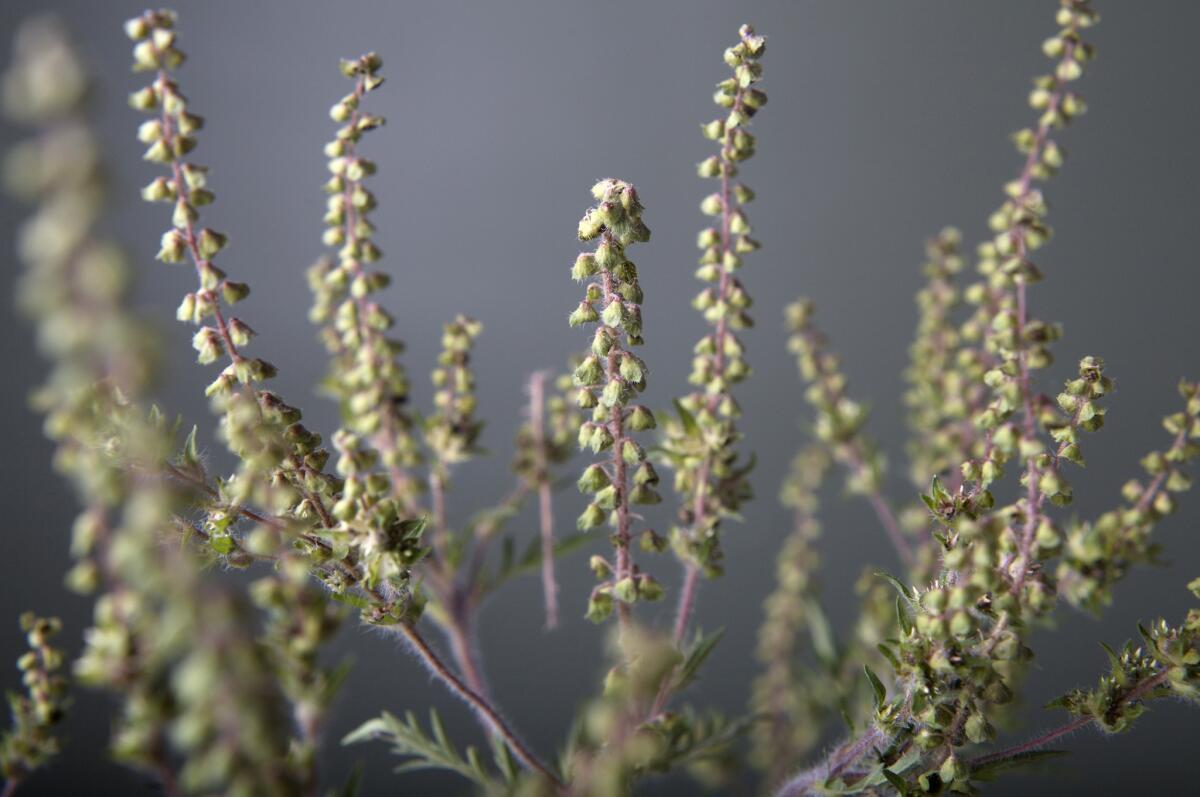How to fend off an allergic reaction to pollen

If your pollen allergies are acting up and getting you down, don’t despair. There are steps you can take that can make a real difference.
Avoiding pollen altogether is probably impossible (unless you live under a dome, in which case you have plenty of other problems). But there are ways to limit your exposure.
Keep your doors and windows closed and run a high-efficiency particulate air (HEPA) filter.
Keep your car windows closed and run the air conditioner.
Check the pollen count (one good site is https://www.pollen.com/allergy-forecast.asp), and stay inside as much as possible when it’s high. In general, counts are highest early in the morning on dry, windy days. They’re lowest on cool, wet days.
When you go outside, wear sunglasses to help keep pollen out of your eyes. And wear a mask when doing yard work. Better yet, let someone who’s not allergic do the yard work.
Dry your laundry in the dryer, not on a line outside. Pollen can land on your wash too. Pollen can also land on your pets, although that’s a harder problem to solve.
Leave your shoes outside when you come in. Then take a shower and wash your hair. Then change into clean clothes. And be sure your shower has a nylon curtain liner, says healthy space designer Robin Wilson of Robin Wilson Home in New York City.
Irrigate your nose with a saline solution. True, some people consider that process as unpleasant as it sounds. To irrigate your nose, you can use a Neti pot or other device, and you can make your own solution or a pre-formulated one. If you make your own, it’s vital to use clean water, or irrigating your nose can actually be dangerous.
If your symptoms persist despite taking the above precautions, you may want to move on to over-the-counter medications. Most of these are antihistamines — meant to counteract the histamines released during an allergic reaction.
If over-the-counter medications don’t help, your healthcare provider may prescribe something stronger, perhaps a topical nasal steroid to use along with an antihistamine. Note that these steroids do not have the same damaging side effects as the anabolic steroids notoriously used by some athletes. They are safe if you use them as recommended.
If you still don’t get enough relief — or if you’re looking for more long-lasting results — you might try allergy shots. These are given in a series of injections containing stronger and stronger concentrations of the pollen allergens you react to. The shots can have major side effects, so you must remain in the shot-giver’s office until it’s clear that it’s safe to leave.
ALSO:
Hot exercise classes catching on like fire
For food on the go, bars are eating up the competition
Steps, time, distance: However measured, walking can reach health goals



